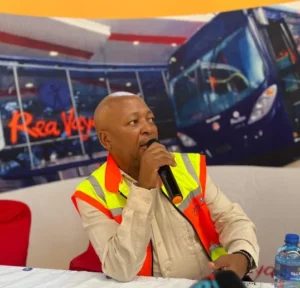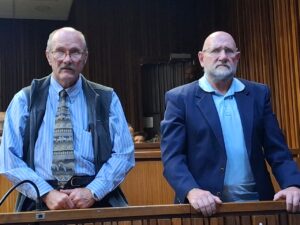By: Hadebe Hadebe
As the dust settles following the fiercely contested local government elections in South Africa, the political parties are doing what they know best: jostling for positions in municipalities. They are preoccupied with who to get to bed with, and all that they were promising during the past weeks is permanently shelved or frozen. The parties will open their manifestos again in exactly five years, now it is time for positions, tenders and amnesia.
Of course, this incurable chronic disease is also evident after national elections since it is in the nature of the South African political system that people are asked to cast votes for free. The votes then become envelopes seal people’s voice and rights for use by politicians at free will. Once a person is voted he is called a ‘representative’, which means he has latitude to abuse people’s rights. There is no accountability and respect for the mandate they are given.
The representative is in charge and does not feel compelled to come back to either consult or feedback. He hides inside vehicles with dark windows and high walls. He has bodyguards that
‘protect’ him from the invisible enemies, who are strangely the same people he begs for votes. There is little or no contact in the famed democracy. People feel humiliated and disregarded.
At local level, this is even more concerning because councillors are supposed to be loving and caring neighbours. Now that they are politically affiliated to a winning political party, they turn against their friends, family and neighbours. It is for that reason I am more than convinced that local government should not be run by political parties. Instead, municipalities should be under community forums that have little or no connection with politics.
Take the example of Thandiwe Mtshweni who lives in Siyabuswa but works as a cashier at Shoprite in Pretoria central over 100 kilometres away. She leaves home at 4:30 to be at work on time. Her work starts at 7:00 and ends at 17:30 for five days per week, and has just four days off plus weekends every month. She gets home at about 20:30 after walking about 15 minutes from the bus stop. At this time, her two young children are ready to go to bed. She is also exhausted from waking up early and from a cumulative four-hour journey by bus to and from work.
Who can be productive under these harsh conditions?
Moreover, Thandiwe belongs to a large group of people who are called the ‘working poor’. This is a class of workers whose earnings or incomes fall way too short of their living needs. A study conducted by researchers from the University of the Western Cape shows that “low-wage work is also associated with poor working conditions and job insecurity”. In this regard, Thandiwe gets paid R3,500 a month which has no pension, medical aid, UIF and other benefits. She has to pay an average of R2,200 each month for transport alone.
The world food price barometer surged to a new peak reaching its highest level since July 2011, according to the Food and Agriculture Organisation (FAO). Thandiwe needs approximately R4,000 for food and groceries excluding other necessities such as doctor’s fees for her asthmatic child, school transfers, etc. In addition, she supports her elderly mother and two unemployed siblings in nearby Marble Hall.
No political party understands the notion that ‘a person should work where he or she lives’. At least, the EFF has some idea what this means. Its leader Julius Malema became a joke on social media when he suggested an EFF government was going to identify land next to Sandton to build RDP houses there. He reasoned that this was “to promote integrated human settlements”. Looking at
Thandiwe’s situation, such an intervention would bring some relief to her finances. Economist HaJoon Chang noted the plight of black South African workers and their problems, including apartheidbased spatial planning.
The majority of the people from townships, rural areas are forced to leave home to search for study and economic opportunities far away from home. Young people and the so-called middle classes represent a new migration system to cities but without a ‘dompass’. Their most distinct handicap is poverty and destituteness. If they do indeed find a job, their salaries are miniscule and are exhausted in accommodation, food and cars. Besides the high employment rate, many people lived in devastating poverty, and are highly indebted beyond measure.
No one cares to talk about high debt of families. Joseph Phiri of Alexander Forbes states that “debt to disposable income for South African households has increased from less than 60% before 1994 to the current level of around 75%…” Economists argue that South Africa’s low savings rate stifles growth. This situation is unlikely to change since people do not have a privilege where they can live and or where they were born. Unfortunately, their places of birth are barren and without any minimal infrastructure. A fact that councillors and political parties hate to talk about.
In all fairness, people will appreciate roads, water and jobs but that is not enough in the current conditions. A job that is 100 kilometres away is not a job but a serious punishment. Water in a hungry stomach is tasteless as is a smooth road without a job. All these variables are intertwined but the structural makeup of the South African society is way too complex for politicians. Maybe it is not, but it is too convenient to pretend that everything is fine. Home issues are much more pressing in any society – people want to live.
Also read: Poor pay for domestic workers subsidises lifestyles of upper classes
At least, 80% of the municipalities across South Africa are as good as a desert. They are impracticable and extremely difficult to run. Unfortunately, this is where a large majority of the black population resides and these are areas that whose development is similar to that of Togo, Lesotho or Haiti if these place were to become independent states. Yet the focus is on established areas that could be in Europe or USA like Pretoria East, Umhlanga, Sandton or Durbanville.
The elections are doing nothing to create a bridge or staircase to link these two societies in one country. These societies have different economies, laws, schooling and health systems. As an anecdote, to enforce lockdowns no one in Bryanston got kicked by soldiers. People in Mamelodi were forced to dip into cold water in the middle of winter or were beaten for breaking the curfew. The rules governing the two societies are extreme worlds apart.
Furthermore, not less than 90% of the estimated R50 billion budget in the City of Tshwane is spent in Centurion, CBD and eastern areas. The water situation in Hammanskraal and crime in Mamelodi and Soshanguve remain unresolved. While politicians were moving in and out of Mamelodi, over 20 people were killed. When asked about the difficulties people live under, councillors refer all issues to the national government.
One is compelled to ask, what exactly is the role of political parties in communities?
My summation is that the biggest problem with the present arrangement is that all political parties have no understanding of what people and their communities need. It is obviously not political slogans and rallies but they want great ideas and interventions that will make their lives better, simple and practical. Essentially, local government is about things that no one should be allowed to change. Put differently, communal issues should form a baseline that every citizen should have.
Therefore, things like living conditions, transport, water, roads, economic opportunities, health, security and education should be part of this non-negotiable baseline. Once policy has been formulated at national level and budgets agreed, the running of community matters should be left to locals, and not political parties. Political parties and their local agents are proving time and time again that they have no idea what local government is about.
Demand for change does not necessarily bring deep structural changes that people desire. South Africa is quickly falling into a craze that is currently troubling Zambian and Kenyan politics. For example, Zambia has had seven presidents since the early 1990s but there is no evidence that things are changing for the better. What this means is that there is no clarity what the winners from the elections will do to address the problems already stated above. Political parties are happy to swop places without delivering anything.
Failure to understand that the essence of politics is about bringing a pork barrel home appears to be a problem. Change without improvement in not only the provision of goods or services but also respect and restoration of dignity for the people is as good as no change at all. The feel good factor that comes with artificial change as a result of elections will be short lived and will also result in frustration. It is unlikely that the socioeconomic conditions in Msinga (IFP), Mpophomeni (DA), and Mdantsane (ANC) will improve after the elections, no matter who wins or loses.
To be honest the problem with so much great aloofness of political parties is that their policy fumbles when it comes to issues facing the people directly are now so iterative that it is even becoming difficult to know what to write about them each year. That is especially the case with the euphoria that grips the country after the ANC lost, and only to be replaced by the equally inept parties such as the IFP, NFP, DA, etc. The divide that characterise South Africa in terms of development, inequality and poverty is almost certain to remain unchanged.
For new people like the IFP in Mhlathuze in KZN, the win is about positions and behaving like red ants. The winners are humiliating the losers by forcing them out of offices, and there is no space for hand over. At face value this may seem the right thing to do but experience shows that there is so much that will go horribly wrong. This politicking will affect the underserved people and bolster politicians and their egos. Elections are about feasting than helping the downtrodden and the needy.
Such things as graft and uncaring attitudes are also not going to go away anytime soon. Everyone is for himself, and politics is a scheme for individuals to get rich quick. Desperation and lack of understanding turn the ‘representatives’ into hyenas and beasts. The reason for this comes from absence of ideas and political will to change things. Political parties have used local government elections as an early battleground for national elections. Therefore, the focus is not on changing conditions in communities but to test their popularity.
South Africa will perhaps function better if local government was going to be run by smaller regional or communal parties, and the likes of the DA, ANC, IFP, EFF, etc. could concentrate on national issues. All of them do not have ideas about how to solve the people’s daily struggles and challenges.
Evidence shows that although the Labour Party and the Tories dominate the British national political landscape, the Liberal Democrats are a serious force at local government.
The Liberal Democrats have since many years concentrated their energies on local government. South Africa needs political entities whose purpose is only to run local government, and this will therefore ensure that local issues get all the attention they deserve. Issues such as nationalisation of the reserve are definitely important but they do not top the list for individuals. Those are national battles that are secondary to struggling families who require immediate assistance and care.
It is not a coincidence that white voters honour their commitment and vote in large numbers. They understand more than anyone else that their close-to-the-heart issues will be well served by local governments. Unsurprisingly, black voters stay away because they know that a vote and a no-vote mean exactly the same, neglect and abandonment. Blacks are largely invisible citizens who live in the shadows of Developed South Africa. So, no one really cares about them including the mainly black political parties.
US-based Danielle Resnick, who is a David M. Rubenstein Fellow at the Brookings Institute, mischaracterised the last local government elections as “a referendum on political parties and local democracy”. Democracy at local has always been absent. Strong men with guns and influence call the shots. In fact, the many people who get killed due politics are found at local level. National politics tends to be democratic, stable and predictable as compared to the volatile local politics. In short, political parties are not really bothered by this except to amass votes and to access patronage.
In summary, local government elections are used as a precursor to the national elections rather than to deliver goods and services to local populations. That explains why there is no change to the lives of millions who live in the margins of opulence and pretence. Political parties deepen social and economic divisions instead of narrowing them. The real change and democracy must occur at local level, meaning that the people’s lives must be impacted directly.
The next few days or weeks will be about coalitions and nothing more. Also, the next five years will be about jostling and forgetfulness on the elected representatives while Thandiwe Mtshweni works more than 120 kilometres away from her home. She will spend four hours each day on the road for a slave wage. Councillors are excited about driving armoured vehicles and bodyguards as well as accessing power to pomp and abuse those who voted them.
Again, a person should work where he or she lives. Political parties and their local agents therefore miss this point.
Siya yi banga le economy!







